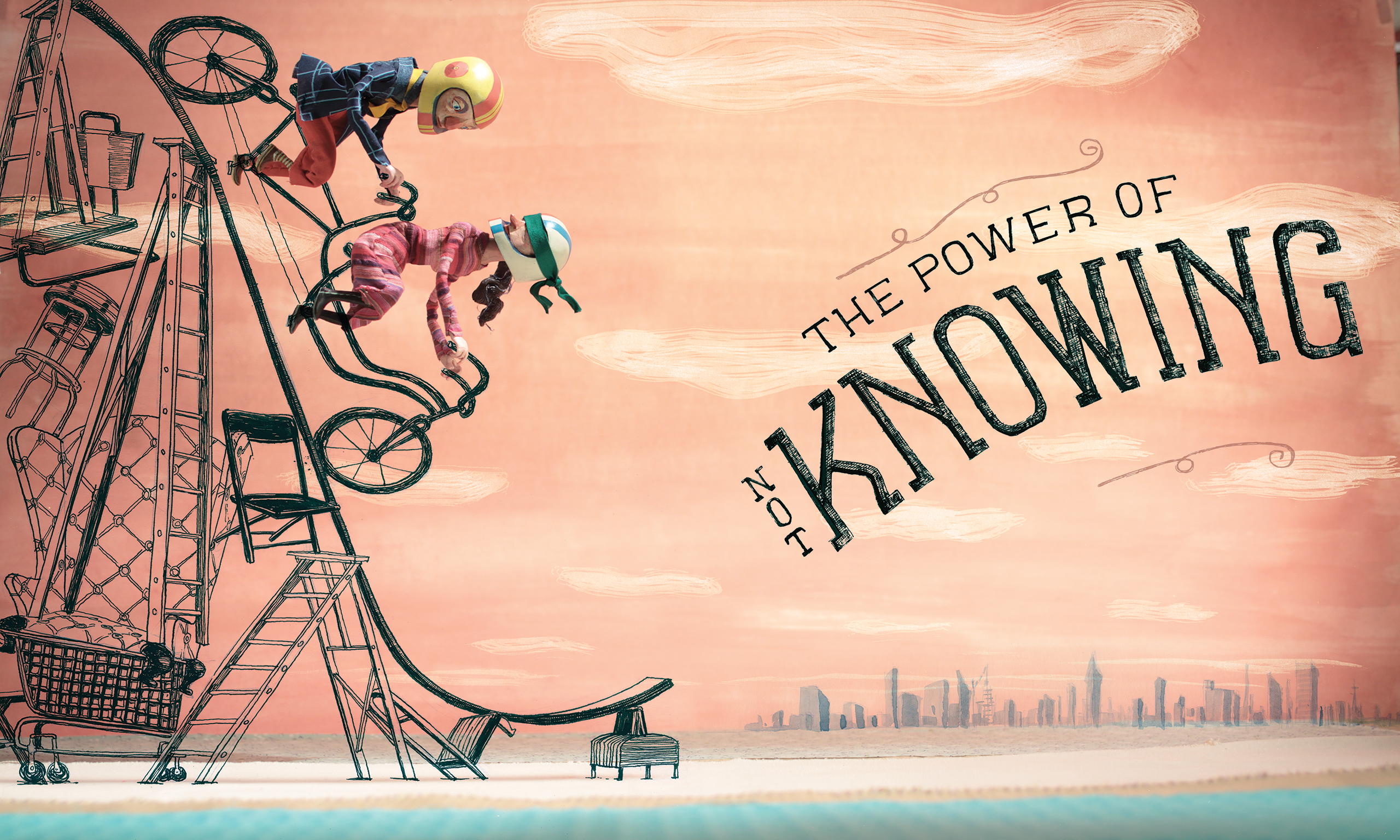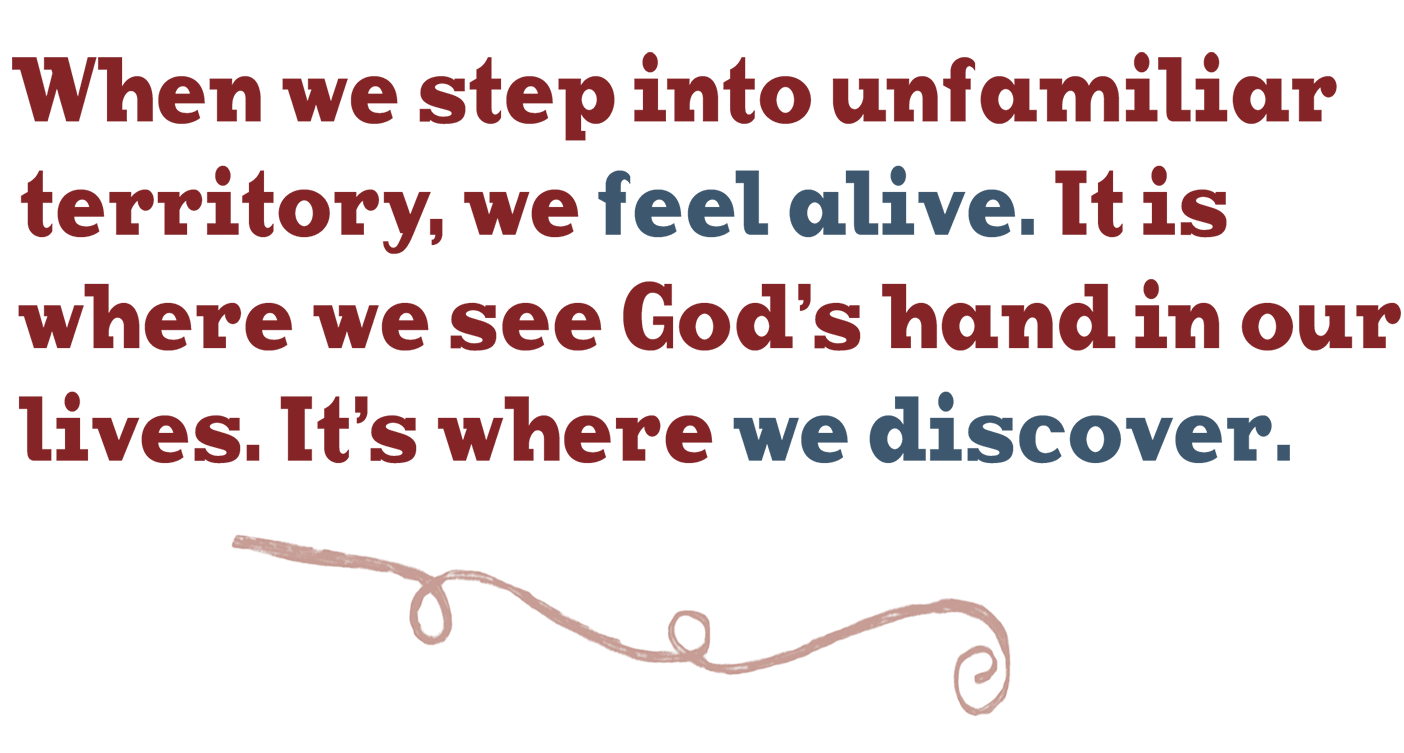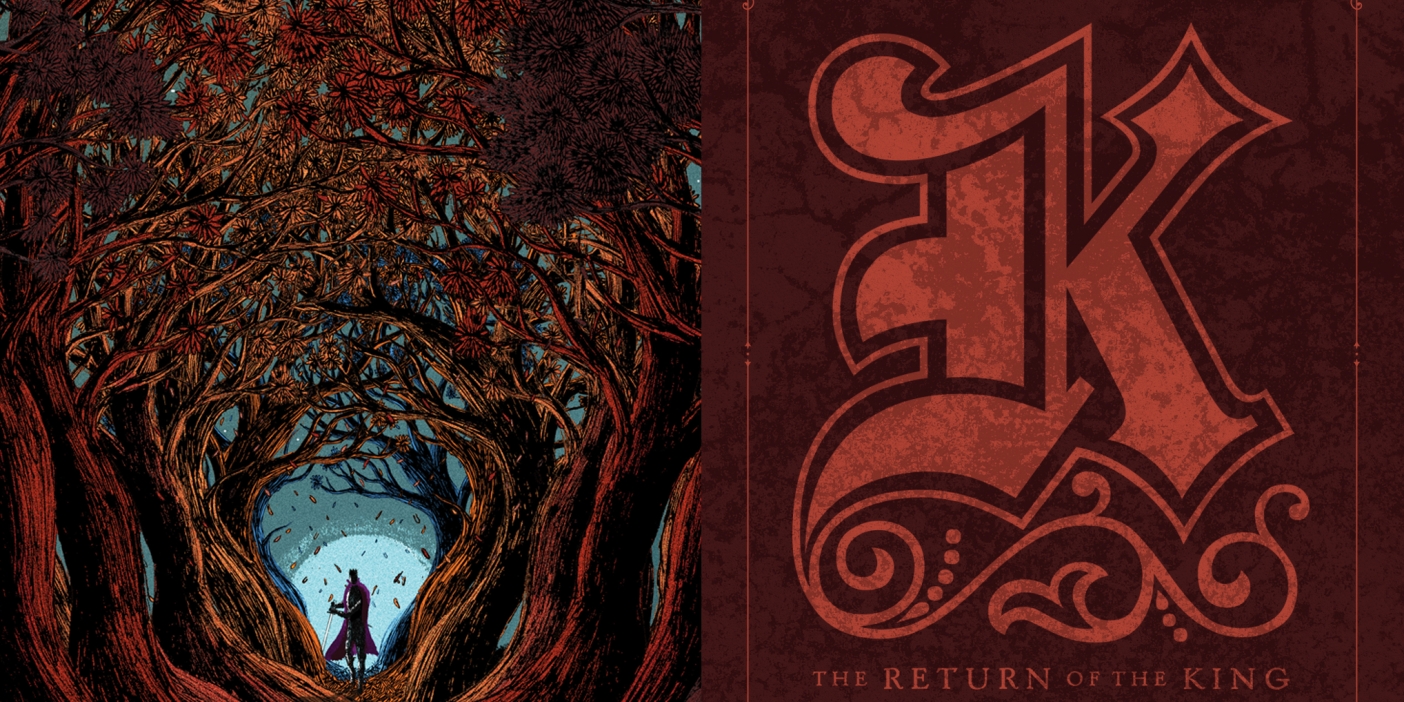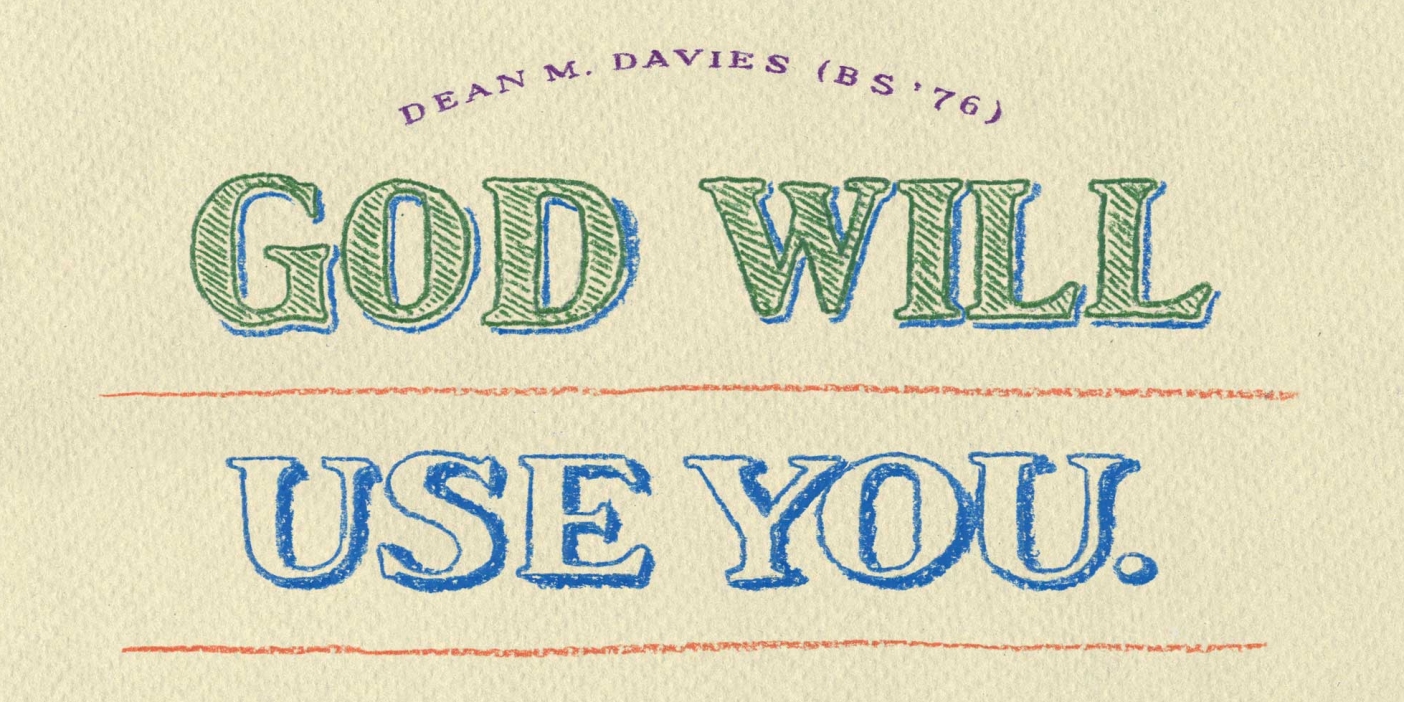The Power of Not Knowing

In leadership and in life, what you don’t know might just help you.
By Elizabeth Allen Wiseman (BS ’86, MOB ’88) in the Fall 2016 Issue
Illustrations by Red Nose Studio
You have heard the saying “Knowledge is power.” In fact, BYU entrance signs admonish us to “enter to learn” and to make the world our campus, and we are reminded by the university motto that “The glory of God is intelligence” (D&C 93:36). As a university, BYU is rightly a place that cultivates knowledge and reveres intelligence.
So the questions I have been exploring may feel a little out of place. For many years I have been researching the dangers of knowledge and the downside of intelligence. Essentially, I have been asking the question: “Can we actually get too smart?” Knowledge may be power, but can there sometimes be more power in not knowing?
As we gain knowledge and intelligence, can we get a little too full of ourselves—too big for our britches? Can we become too smart for our own good—and for the good of others?
I want to make a case for ignorance—not ignorance as in stupidity or the lack of education but simply as in the lack of certainty.
Multiplying Leadership
When I graduated from BYU’s Marriott School of Management, I took a job working for a small maverick software company called Oracle. (At the time most people figured it was a toothbrush manufacturer.) Oracle had a simple and clear hiring strategy: hire the top grads out of the top schools, mix them all together, and see what happens.
Oracle, however, didn’t recruit me; I found Oracle and wiggled my way into the mix. I felt lucky to be working there and to be around all these brilliant people. I became a genius watcher.
I saw how intelligence—raw brilliance and smarts—could be a powerful tool for growth and innovation, but I also saw how intelligence was sometimes used as a weapon. We all know that smart people tend to get promoted into management, but many of these leaders struggle to see the full genius and capability of the people around them. They are smart, but they tend to shut down the smarts of others. They are the idea killers and energy zappers inside of an organization.
They are like one brilliant Oracle executive who managed several divisions inside the company. He would personally review and edit every piece of documentation for every product that came out of his product divisions. The authors would get the documents back with all sorts of scribble marks in his signature green ink and with a lot of capital Ts. At the end of the document he provided a helpful legend to interpret these notations: “T = Terrible.” I was not surprised to see people hold back and play it safe around this executive.
But I also noticed a different type of leader among these managers, leaders whose intelligence was infectious inside the organization and who seemed to bring out the intelligence of people around them. When these leaders walked into a room, it was as if you could see lightbulbs turning on over people’s heads; ideas flowed and problems got solved.

I became determined to find out why some leaders—whom I call multipliers—seemed to bring out the best in the people around them while others—diminishers—seemed to suck intelligence and life right out of a room.
This research showed that multipliers did a number of things similarly to diminishers, but they did a few things very differently. Diminishers issued directives based on what they could see and what they knew. On the other hand, multipliers defined opportunities and invited others to stretch toward them. Diminishers carried a belief that no one can figure things out without them, whereas the multipliers believed that people are fundamentally smart and can figure things out.
The research showed that diminisher leaders got less than half of the available intelligence around them, whereas multiplier leaders got all of it.
One of my favorite multiplier leaders is Magic Johnson. Even back in high school, when he was just Earvin Johnson Jr., he was a phenomenally talented basketball player. His high school coach told him, “Earvin, every time you get the ball, I want you to take the shot.” And so he did—and he scored a lot of points as they won every game. They would score 54 points, and Earvin would have made 52 of them. The coach loved it, and the players loved it because what boy doesn’t want to be on an undefeated team?
But then after one particular game, as the players were leaving the gym and heading out to their cars, Earvin noticed the faces of the parents who had come to watch their sons play basketball but instead ended up watching this superstar.
He said, “I made a decision at this very young age that I would use my God-given talent to help everyone on the team be a better player.” It was this decision that eventually earned him the nickname Magic—for his ability to raise the level of play of every team that he ever played on.¹
The Accidental Diminisher
I started out thinking that diminishers were narcissistic, tyrannical bullies, but what I found is that most diminishers actually were nice people. Most of the diminishing happening in our schools, workplaces, and homes was by good people who thought they were doing a good job of leading. It was happening to the best intentioned of us.
You might ask yourself, “How might I be having a diminishing impact on those I lead, work alongside, or live with?”
Maybe you are an “idea guy,” the creative thinker who is constantly spouting ideas, thinking they will stimulate other ideas. But actually people just end up chasing the leader’s ideas and shutting down their own creativity.

Or maybe you are the “always-on leader,” the charismatic manager who is always present, always engaged, and always has something to say. These leaders think their energy is infectious, but people find them to be suffocating.
Or what about the “rescuer”? These leaders don’t like to see people suffer, struggle, make mistakes, or fail, so they extend a hand of help. But in so doing they end up leaving people rather helpless.
Or the “pacesetter,” who leads by example, assuming that other people will see and follow? But when others conclude they can’t catch up, these leaders end up creating more spectators than followers.
Or the “optimist,” the can-do leader who sees nothing but possibilities but also overlooks problems?
Becoming a great leader requires us to understand how our most noble intentions can end up having a diminishing effect. Sometimes we don’t see it until much later.
I ran into Mr. T = Terrible several years ago at a gathering of Oracle alumni who had helped build and grow the company. During a break I saw this former executive and said, “This must be really fun for you to look back and see what you built.” He responded in a way I wasn’t expecting at all. He got heavy and sad and said, “No. Actually this is really painful for me, because I think I was really hard on people. And I realize now that I didn’t need to be.”
Rookie Mode
I was just a year and a half into my career when I was asked to manage the training function for Oracle. That seemed premature to me, but then it was really premature when they said Larry Ellison, the CEO, wanted to create an “Oracle University” and it was my job to build the team to do it.
Having this big job with very little experience, I was forced to ask a lot of questions and stay close to the executives. My strategy was to keep showing up at their staff meetings and to learn as quickly as I could.
We were doing a pretty good job in our initial efforts, but I took a lot of teasing from the executives about being so young for a big job. On one occasion my boss and I were at a business event, and he introduced me to a client, saying, “This is Liz. She runs Oracle University.” The man noticeably flinched, and my boss, who thought this quite fun, came to my aid by smiling and saying, “Oh yeah, Liz? She’s not particularly qualified for her job.”
I had to defend myself, so I said, “Hey, who wants a job they are qualified for? There would be nothing to learn.”
And it was as if he had said, “Wish granted,” because for the next dozen years I had jobs that I had no idea how to do. Eventually, I started to feel qualified, but that is also when I started to feel stagnant and stuck. So I decided to leave Oracle in search of something I didn’t know how to do—which kept things wide open. It is what led me to be a management researcher and author.

One of the first questions I researched was this: How does what I know get in the way of what I don’t know but maybe need to learn? This was a relevant question for me because I was leaving a comfortable environment in which I was the boss for unfamiliar territory in which I would be an underdog at best.
But it also struck me as a relevant question for our time because we live and work in a reality where technology has allowed our cycles of business life to spin so fast that often we don’t face the same problem twice. And the state of the art doesn’t stand still or stay true for very long.
My research team and I studied about 400 different work scenarios, looking at how people with experience approach a particular task and how people without experience approach the same task. We found that while experience brings many virtues and assets, it also carries a number of blind spots.
As we become familiar with a subject, we see what we expect to see; sometimes the more we know, the less we see around us.
Of course, when we operate without experience, there are downsides. No one wants a rookie surgeon or a rookie dentist, and if you have been to a first violin recital, you know what you are in for.
But our research showed us that when we are inexperienced at something really hard and really important, we operate in some predictable and interesting ways. When we are in this rookie mode, we operate unencumbered by knowledge, so we see more possibilities and we explore more. We lack know-how, so we have to go out and get it.
As rookies, we ask better questions. We listen more. We value feedback. Without expertise of our own, we mobilize the expertise of others.
When we are in this rookie zone, we are not big, bold risk-takers; we are actually extremely cautious. But we are fast. With knowledge work rookies tend to outperform people in both innovation and speed. When we are on a frontier, we operate in scrappy ways—we improvise, we are lean, we are agile, and we stay close to our customers. It is when we lack resources that we get really resourceful.
We also found an interesting relationship between challenge level and satisfaction. We surveyed more than 1,000 people, asking two simple questions: How challenged are you in your work? and How satisfied are you in your work? We found a linear correlation. As challenge level goes up, so does satisfaction.

Why is it that challenges tend to bring out our best? It is not because we like them so much.
An object lesson can help explain this dynamic: Imagine two people holding on to a rubber band. One person, representing the leader or challenger, steps back until the rubber band is stretched as tight as possible without breaking. If I am the person holding on to the other end, I am left in a position I can’t maintain very long. What are my options? I can either let go—representing giving up—or I can step closer to the other person to remove the tension—which represents gaining knowledge or solving the problem. Then what does a good leader do? A good leader takes another step back, renewing the tension, providing another opportunity for growth.
Herein lies the secret of the rookie zone. It propels us to do our best work because we don’t like it. We can’t stand to be in this state of tension where the size of the task is bigger than our capability, and that tension propels us forward. We either let go or we push through.
When we linger too long on a plateau, a little part of us dies inside. But when we step out of the space of knowing—where we are fully capable—and step into unfamiliar territory, we feel alive. I believe that is where we feel divine, and it is where we see God’s hand working in our lives. Our state of not knowing is where we come to know God. It’s where we discover.
Escaping the Knowledge Trap
If knowledge can be a trap that limits our own growth and stifles the genius in those we lead, how can we escape it? Here are three simple practices that can make a difference:
1. Ask More Questions
Many years ago I was commiserating with my work buddy Brian about some of our parenting challenges. At the time my husband and I had three children, ages 6, 4, and 2. “I feel like I have become like a little bit of a dictator in my house,” I told Brian. “I have become a bossy mom.” Brian was surprised by this, so I elaborated by describing bedtime at our house (and if you have the 6-4-2 combo, you know exactly what this is like): It’s ‘Okay kids, time for bed. Put that away. Go over here. Help your sisters. Get your pajamas on. No, no, no, the tag goes in the back. Go brush your teeth. Go back. Use toothpaste. Time for a book. Get a book. Not that book. No big books, not five books, no princess books. Okay, get a little book. Good. Story time done. Say your prayers. Get into bed. Not in my bed. Out of her bed. Back to bed. Go to sleep.” There was no yelling—just constant telling, night after night after night.
So Brian offered me a little coaching: “Why don’t you go home tonight and try speaking to your children only in the form of questions?”
My first inclination was to argue that it would take me four hours to get them to bed, but then I became intrigued by this challenge—which I now call the “extreme question challenge.” I decided to try it—nothing but questions would come out of my mouth that night.
Dinner and playtime were interesting. When we got to bedtime, I said, “Kids, what time is it?”
And they said, “Bedtime?”
And I said, “What do we do first? Where does that go? Who needs help getting their pajamas on? Who is going to be the first to brush their teeth? Okay, whose turn is it to pick the story? Which story are we going to read? Who is going to read the story, Mom or Dad?” And then it was, “Okay. What do we do when story time is over?”
And they said, “Well, we pray,” because they knew.
And then my last question was, “Okay. Who is ready for bed?”
“Me! Me! Me! Pick me! Pick me!”

And they went and got in their beds and stayed in their beds. And I was left in the hallway wondering, “How long have they known how to do this?”
I learned that night that when I asked questions, other people found answers and that people didn’t really need me telling them what to do. They needed me to ask them an intelligent question.
It is one of the most powerful shifts we can make as a leader—moving from a place of knowing to a place of inquiry.
2. Admit What You Don’t Know
About 20 years ago I sat in a meeting that changed how I define a great leader. I was working with Oracle’s three top executives. We had been running a series of strategy summits, bringing in our executives in groups of about 30 at a time to brief them on the strategy and send them on their way. After several of these summits, I was meeting with these top leaders to discuss feedback—and it wasn’t good. Participants said the strategy articulated by these top executives wasn’t very clear and, frankly, wasn’t very compelling.
As I reviewed the feedback with them, they became unusually quiet. That is when my boss said, “Hey, Liz, you can stop beating us up. We get that there is a problem. The issue is we don’t know how to do this.”
The other two were nodding their heads. My boss said, “We have never run a $25 billion company before. We don’t know how to set a strategy for a company this global and this complex. It is new to us. If you could help us figure out how to do this, that would be useful.”
In fast times, it turns out, everyone is winging it, even the people at the top—particularly the people at the top. If people are looking up to you in an organization, you can admit what you don’t know. It creates a powerful dynamic.
If you are at the bottom of the organization, the new hire, relax. You don’t have to pretend to know more than you do. You were not hired for what you learned at college. You were hired for your raw intellect and your ability to think and reason and solve problems. Your value will come from the know-how you build, not the know-how you bring.
3. See the Genius in Others
Three of our four children have what I would describe as an active sense of adventure. However, Christian, our 17-year-old, was born without a sense of fear. His mantra is “See it, climb it, figure out how to get down later. Think it, make it, clean up the mess absolutely never.” One of his creations is a man fort, which isn’t that unusual. The problem is where he built it—on the roof of our house. (It was there for two months before we discovered it.)
It is easy for my husband and me to focus on keeping him safe and telling him how to do things and dispensing survival advice (“Alive till 25” is our mantra). Most of our advice just bounces off. A couple of years ago, I decided to do something different. Instead of trying to dispense advice, I would simply focus on seeing his brilliance.
And I have come to see him differently. Whereas I used to see a dangerous and destructive kid who might kill himself and the rest of us with him, I have come to see a creator, a brilliant and bold innovator, a problem-solver, someone who takes initiative, a fearless missionary. Nothing makes me happier than that special look when he’s done something ingenious.
One of my favorites was when we came home recently to learn that he had gashed open his shin. I was alarmed, of course, but then he rolled up his pant leg to show me that he had just stitched it up himself!
I suppressed my instinctual horrified response and said, “How brilliant! How brilliant! And how cost-effective for your father and me that you have done that.”
Be a Genius Maker
Ironically, we are so often at our best when we don’t know. We tend to do our best work when we are on the outer edges of what we know, when we are doing something hard and new, and when we are growing through challenge. It is not only where we do our best work but where we tend to find our greatest joy.
The best leaders don’t have the answers; the best leaders have really good questions, and they use those questions and their own intelligence to bring out the genius in the people around them.
In a Time magazine essay describing the actor George Clooney, the musician Bono likened him to the second of two British prime ministers from the 1800s:
It has been said that after meeting with the great British Prime Minister William Ewart Gladstone, you left feeling he was the smartest person in the world, but after meeting with his rival Benjamin Disraeli, you left thinking you were the smartest person.²
It is time we recognize that it is not the genius who is at the top of the intelligence hierarchy but rather the genius maker. So as we gain knowledge, let’s not get too big for our britches. The best leaders are restless learners and perpetual rookies. They realize that it is not what you know that counts, it is how fast you can learn.
Yes, the glory of God is intelligence, but it is in seeking, not knowing, that we find truth. It is in that space that we discover the true glory of God.
Feedback: Send comments on this article to magazine@byu.edu.
Notes
1. Pat Riley, speech to SAP, July 12, 2011, Miami.
2. Bono, “George Clooney,” Time, April 30, 2009, content.time.com/time/specials/packages/article/0,28804,1894410_1894289_1894280,00.html.

Liz Wiseman is president of the Wiseman Group, a leadership research and development firm, and a bestselling author. This article is adapted form a BYU forum address given Jan. 26, 2016, available at speeches.byu.edu.




